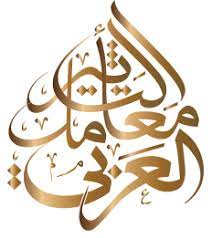Examination and criticism of the narrations in the interpretation of the Almighty’s saying: (He who has the knowledge of the Book)
DOI:
https://doi.org/10.36317/kaj/2021/v1.i46.650Keywords:
interpretation, Explanatory narratives, Book science, narratorsAbstract
Examination in the labyrinth of the world of hadith transmission has always been a focus of attention for scholars and researchers of religious sciences to benefit from the high concepts and teachings of the ancients and sheikhs of religion on the one hand, and to close, by distinguishing the correct from the incorrect, the way on the influence of superstitions and poor concepts that were the result of personal thinking and the work of the prejudiced at times , On the other hand. In the meantime, delving into the hadiths that dealt with the interpretation of the verses of the Qur’an - and in this way the books of traditional interpretations were written - is of double importance because the Qur’an was the basis for the unity of Islamic beliefs, and it goes without saying that these misinterpretations and misconceptions will turn the very basis of unity into a source of difference. As if this matter was the focus of the Prophet (PBUH), who strictly forbade Muslims to interpret the verses of the Qur’an by opinion. This itself demonstrates the need to address the topic of this research. In this article, the author criticizes and studies a group of hadiths that have declared the interpretation of the phrase “who has knowledge of the Book” in verse 43 of Surat Al-Ra’d, because he seeks within the discovery of the concept and the true meaning of the verse, to criticize the incorrect narratives in the interpretation of the verse. In fact, the verse refers to the one who has the “knowledge of the Book.” As we can see now, the expression of this person's credibility resulted in different points of view that appeared in the narrators' accounts. In this regard, the hadiths of two groups were mentioned, and basic criticisms were made on some of these narrations. The results of this article showed that ideological purposes, personal grudges, and interpretation by opinion forced some narrators to distort the narratives, and as a result, changed the concept of some verses. The way to do this article is the desktop way.
Downloads
Downloads
Published
How to Cite
Issue
Section
License
Copyright (c) 2020 Dr. Ihsan Rouhi Dehkerdi, Dr. Mohammad Shariati Kamalabad, Dr. Majid Rouhi Dehkerdi

This work is licensed under a Creative Commons Attribution 4.0 International License.



















